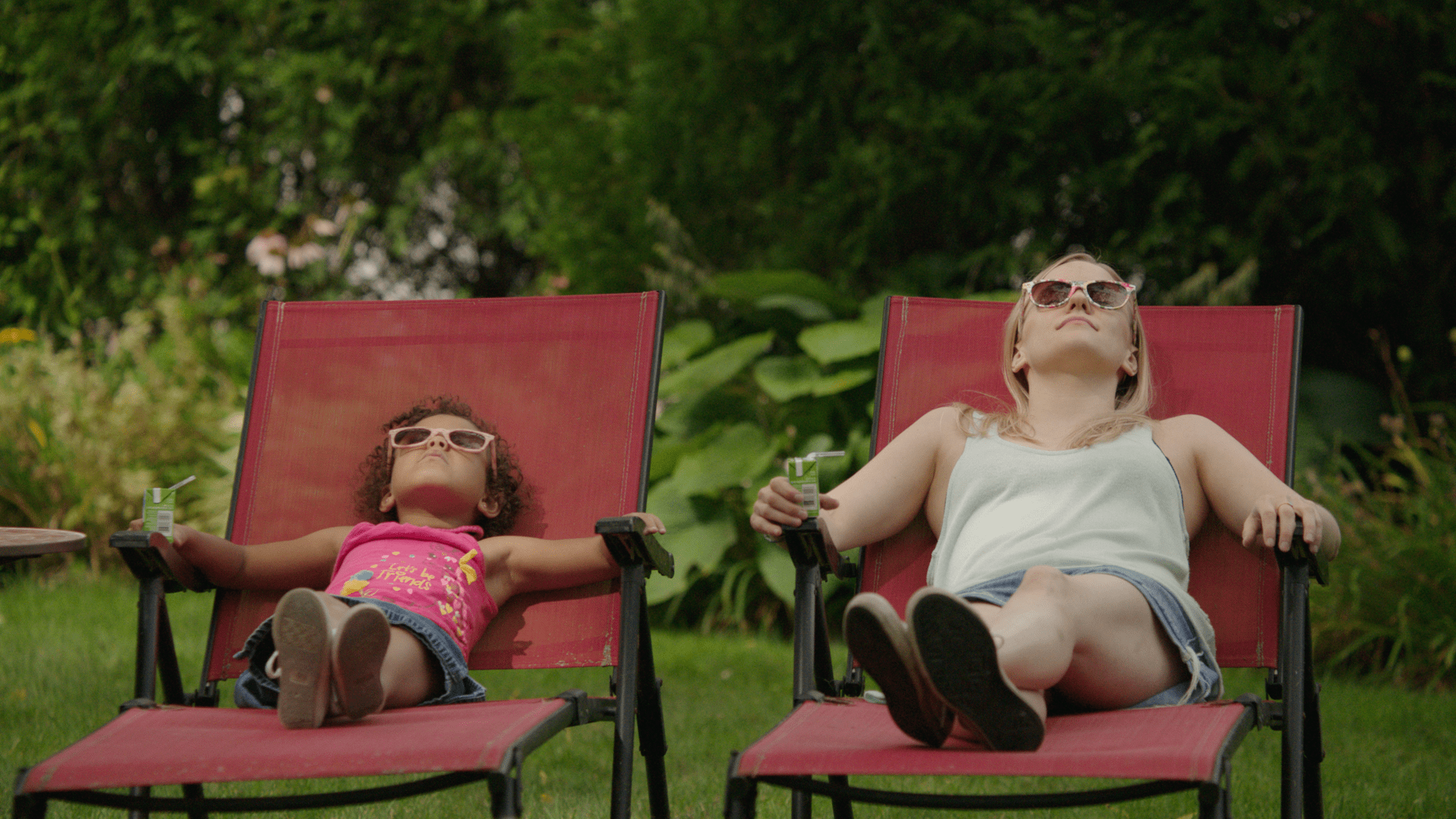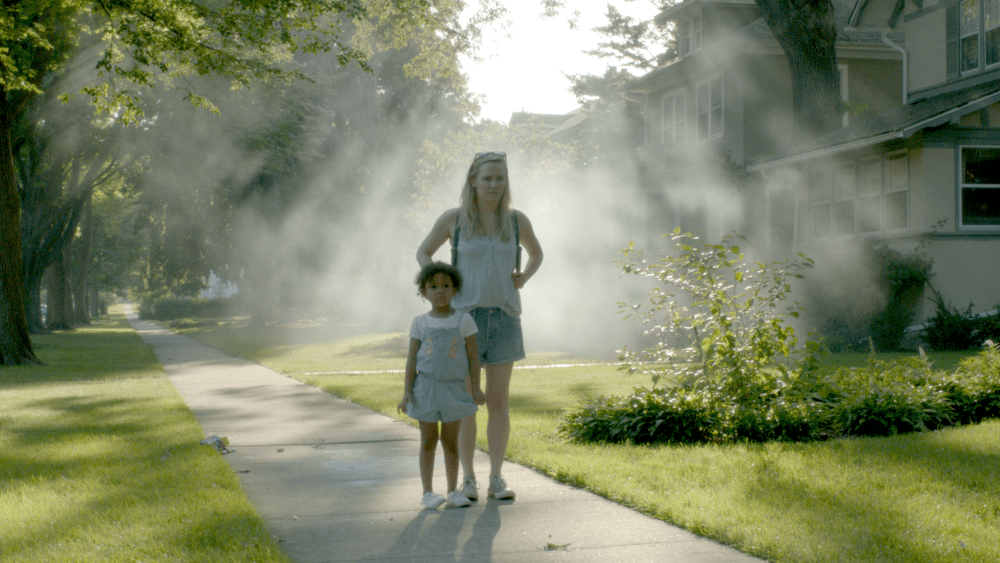Advertisement
Review
Coolidge Corner Theatre Presents 'Saint Frances' And 'Bacurau,' Now Playing On A (Home) Screen Near You

Movie theaters may be closed but now you can go to the Coolidge without leaving your house. Arthouse distributors Oscilloscope Labs and Kino Lorber have teamed up with the Coolidge Corner Theatre to create virtual screening rooms for their new releases “Saint Frances” and “Bacurau.” When you rent the movie, they split the revenue with the theater, same as if you’d bought a ticket. (And if you’d like to kick in for the price of popcorn and soda, you can always donate that directly.) This is a great way to support a local institution that has enriched my life immeasurably over the years, and much to my relief, both films happen to be excellent. “Saint Frances” is a small scaled indie charmer while the bonkers Brazilian import “Bacurau” is one of this year’s very best.
Winner of the audience award at last year’s SXSW Film Festival, the deceptively breezy “Saint Frances” stars Kelly O’Sullivan as Bridget, a 34-year-old college dropout still working as a server in Chicago and feeling painfully inadequate around old friends who appear to have their lives much more in order. Without a husband or a career and no aching desire for either, the aimless Bridget drifts her way through casual affairs and disposable jobs, wondering when things are really going to start for her. Then one summer, she quite accidentally finds herself working as a nanny for a hilariously bougie lesbian couple in the suburbs, taking care of 6-year-old hellion Frances (Ramona Edith-Williams) while mom Maya (Charin Alvarez) tends to the kid’s newborn baby brother.

The screenplay — written by O’Sullivan and inspired by some of her own life experiences — neatly sidesteps the clichés inherent in its narrative hook. Frances is no saint, and certainly not one of those adorable moppets you meet in the movies about cranky grown-ups learning how to love little children so they can settle down and make some of their own. The kid is kind of a pain in the you-know-what but then Bridget’s also a pretty terrible nanny, losing track of Frances at the worst possible moments and hooking up with a sleazy music teacher who can’t even be bothered to offer her a ride home. Such hijinks aren’t played for broad laughs but rather a tone more muted and melancholy, carried off by O’Sullivan’s enormously appealing lead performance and the deadpan poker-face skills of young Edith-Williams.
Early on in the picture, Bridget gets an abortion, and the rest of “Saint Frances” traces the fallout both physically and emotionally without ever doubting that her decision was the right one. (It’s a quietly revolutionary approach. You might have to go all the way back to “Fast Times at Ridgemont High” to find a film that treats the touchy topic so matter-of-factly.) Her sometime sex partner Jace (Max Lipchitz) is a 26-year-old waiter with a roommate who loudly and profanely plays videogames in the next room during their date nights, which we’re told is okay because “he’s a Buddhist.”) Jace is a sweet enough guy but hardly husband material, and as Bridget recovers from the procedure she notes just how unfairly easy things are on the men in this situation. “I feel like you should have to get food poisoning or something,” she says.
Prominently showcasing tons of stained underwear and used tampons, “Saint Frances” features more menstrual blood than any movie since “Carrie.” It’s disarmingly frank about what goes on with women’s bodies in ways that movies never are but probably really should be. Maya is suffering from postpartum depression, along with a self-inflicted need to be one of those perfect mommies on Instagram and in the lifestyle blogs. But the movie’s most astute observation is that everybody’s faking it to some degree or another, and if we all could be more open about our shortcomings then, in Bridget’s words, “maybe women wouldn’t feel so f--kin’ lonely all the time.” This is the kind of movie that makes you feel less lonely.

Way on the other end of the cinematic spectrum is the gonzo psychedelic Western “Bacurau,” a future cult classic you can catch now on its way to what will presumably be an epic afterlife of midnight screenings. Something like “Mad Max: Fury Road” slowed down to a fourth of the speed and pumped up with even more unsubtle allegories, the film is set “a few years from now,” when the title town is menaced by a horde of mysterious, moneyed big game hunters who have literally wiped the community off the map. (Well, they’ve erased it from Google Earth, anyway.)
Led by the great Eurotrash icon Udo Kier, these psychopathic sadists get more than they bargained for from the people of this little village, who band together and overcome the invaders’ superior firepower using relics from a local museum devoted to the history of colonial exploitation. (Again, subtlety is not the movie’s strong suit.) In synopsis, I suppose this probably sounds an awful lot like “The Hunt,” which brings to mind Jean-Luc Godard’s oft-cited maxim that the best way to criticize a movie is to make another movie.
Advertisement
Unlike that smug Reddit meme disguised as a thriller, “Bacurau” isn’t bogged down with trending topics. Directors Juliano Dornelles and Kleber Mendonça Filho have a grander, more elemental vision that emphasizes above all a community coming together in crisis. I’m sure that there’s a lot I’m missing here about Brazilian history, but the strokes are bold enough to make the story feel universal. In fact, watching the film again this week I couldn’t help but marvel at how urgent it speaks to this very moment, as the villagers are betrayed by a braying narcissist of a politician who drives around with his own jumbotron, making a grand show of delivering useless relief supplies and stealing away with young girls in the night. The people of Bacarau are cut off, abandoned by their leaders and left to fend for themselves as a deadly threat encroaches.

The movie also boasts a bravura performance from the legendary Sônia Braga as a town doctor with a quick temper and a filthy mouth. Watching her square off against Udo Kier — with the smooth sounds of Spandau Ballet on the soundtrack, no less — was something I never knew I needed so badly. (Braga, who also burned up the screen in Mendonça Filho’s incendiary “Aquarius” a few years back, has been a world cinema superstar since the days of “Dona Flor and Her Two Husbands” or “Kiss of the Spider Woman.” But men who were little boys during a certain era will never forget her mounting a captive Clint Eastwood while he was tied to a chair in 1990’s astoundingly tasteless “The Rookie.”)
The rococo wonders of “Bacurau” — with its naked elderly folks wielding shotguns in the shower and a drone camera disguised as a 1950s sci-fi movie flying saucer — are in the service of an underlying optimism that frankly feels like a balm right now. I can’t think of a more fitting way to support your local theater than with this story of people banding together in the face of disaster. We might all be off the map at the moment, but this movie reminds us that we’ve still got each other.
"Saint Frances" and "Bacurau" are available through the Coolidge Corner Theatre's Virtual Screening Room.
